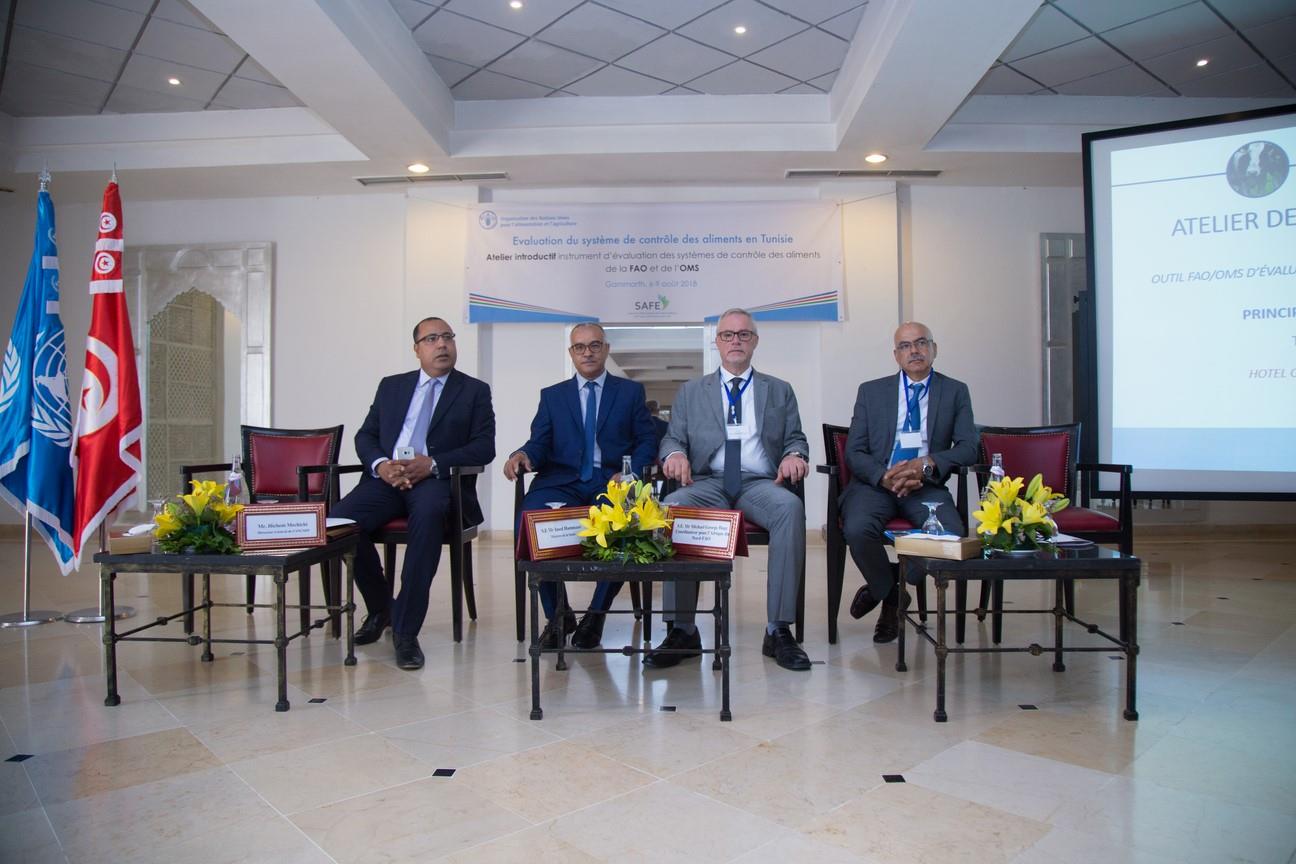Evaluation of the National Food Control System in Tunisia

Tunis, 6 to 9 August 2018: The national workshop inaugurated today by Mr. Michael Hage, FAO Coordinator for North Africa and Representative for Tunisia, Mr. Mohamed Meftah, Chief of Staff at the Ministry of Health and Mr. Mohamed Lahbib Ben Jamaa, DG of the Protection and Quality Control of Agricultural Products (MARHP) will enable Tunisia to carry out a global analysis and equip it with a new instrument for evaluating its national food control system. This introductory training workshop aims to inform decision-makers and competent authorities on this new FAO / WHO instrument that will consolidate the national food assessment process in Tunisia. With a recommended approach and methodology, national authorities will be able to evaluate, in a structured, transparent and measurable way, the performance of the control systems along the food chain and monitor and evaluate progress over time. This instrument is the only one that allows for a comprehensive analysis of the national food control system, anchored in Codex principles and internationally recognized good practices. To date, it has been tested conclusively in Morocco, The Gambia, Zambia, Sierra Leone, Zimbabwe, Moldova, Indonesia, Iran and Malawi.
The Arab Initiative for Food Safety and Trade Facilitation (SAFE) is funded by the Swedish International Development Agency (SIDA). It is a capacity-building project implemented by the United Nations Industrial Development Organization (UNIDO) in collaboration with the League of Arab States, the Arab Organization for Industrial Development and Mining (AIDMO) and the Arab Organization for Agricultural Development (AOAD). Following a request from Tunisia, UNIDO requested collaboration and support from FAO for the design, management and implementation of programs of activities in the framework of a technical cooperation agreement signed between FAO and UNIDO in February 2018.
In his address, Mr. Michael Hage, FAO Coordinator for North Africa and Representative for Tunisia, said that this project falls within the prerogatives of Sustainable Development Goal 2, which aims to eliminate hunger, ensure food security, improve nutrition and promote sustainable agriculture. He recalled that "food safety and control has been a long-standing area of work for FAO and WHO, and both organizations have developed Guidelines to Strengthen National Food Control Systems and Approaches to Food Control so as to support continuous improvement at the country level".
During this information and training workshop, it is expected that this new evaluation instrument will be appropriated by participants and that they will have a common understanding of its scope, methodology and approach. Strong commitment at the highest level of decision-making is required to support this new evaluation process. In addition, the focal points designated by each competent authority will be trained in particular in terms of identification and genesis and collection of illustrative data and the actions taken by the competent authorities.
Contact
Faten Aouadi
Communications Officer
Bureau sous régional de la FAO
pour l’Afrique du Nord
[email protected] / [email protected]
00 (216) 70 145 700 ext. : 323
00 (216) 98 703 026
